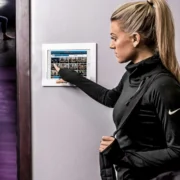CEO Corner: The Ironman Group’s Scott DeRue on Building a ‘Lifestyle Brand’
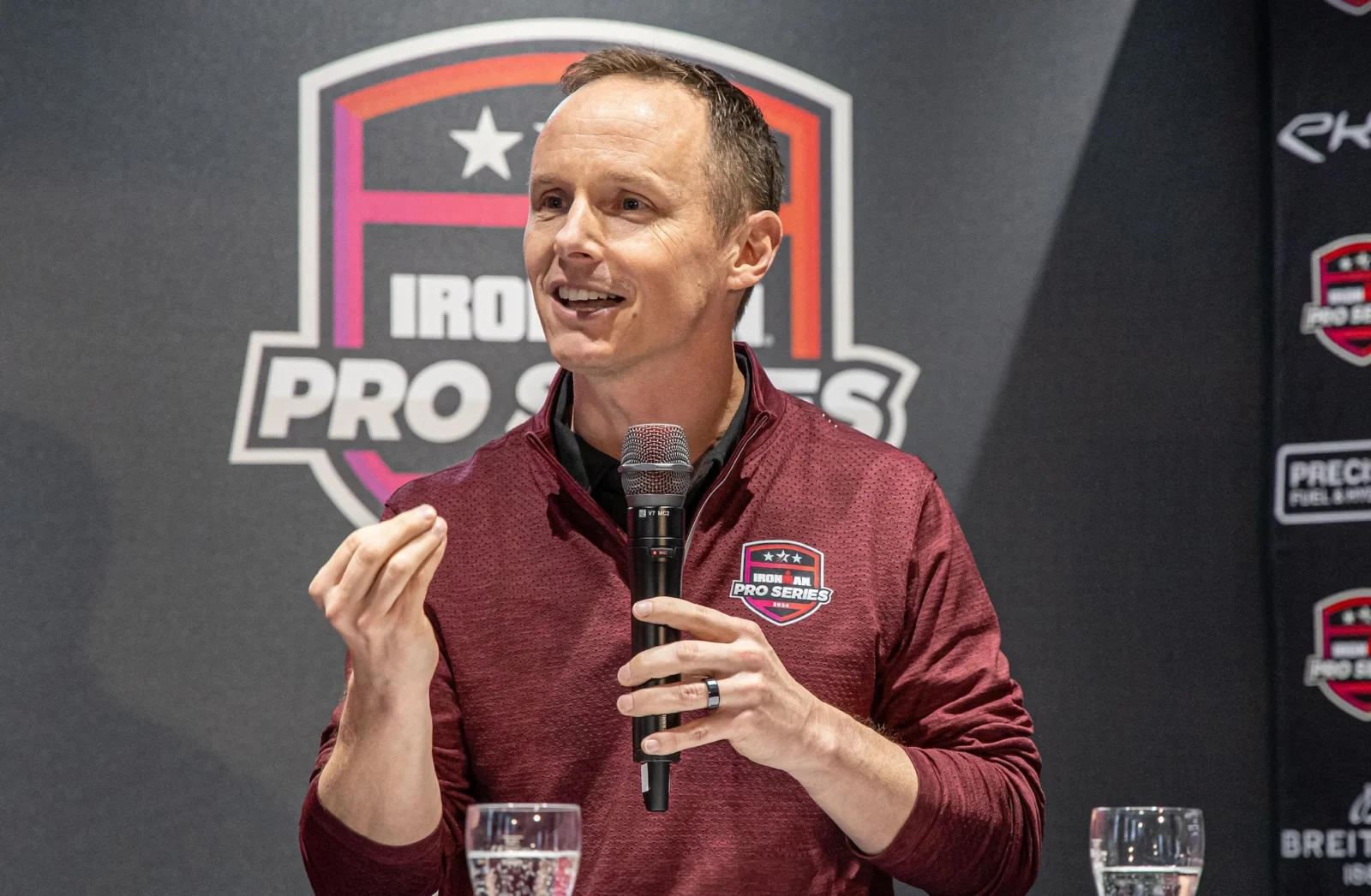
The former president of Equinox and dean of a top business school, DeRue has helped build out The Ironman Group’s digital presence and merchandising arm
You’d have trouble finding an executive who’s a better fit for their job than Scott DeRue, the new CEO of The Ironman Group.
An ultramarathon runner and mountaineer before he joined Ironman, DuRue has a long-standing connection to endurance sports. He also served as the president of luxury fitness brand Equinox and was once dean of the Stephen M. Ross School of Business at the University of Michigan, giving him a powerful combination of personal and professional qualifications.
DeRue was named CEO of The Ironman Group in January, taking over the brand’s famous triathlon events along with its trail running, road running and cycling competitions across the globe.
In his first 9-plus months on the job, DeRue has dived head-first into all things Ironman, even competing in his first triathlon to get a deeper personal feel for the brand. On the business side, DeRue has helped build out Ironman’s digital presence and revamped its merchandising arm.
The goal, according to DeRue, is to turn Ironman into a “lifestyle brand” that athletes and consumers can engage with year-round rather than just on race day.
DeRue sat down with Athletech News to discuss his early days as Ironman CEO, his personal connection to endurance sports, and why he believes Ironman is well-positioned to become an even bigger part of the global sports and fitness landscape.
The following conversation has been lightly edited for clarity and length.
Athletech News: Can you tell us a bit about your background in academia and fitness, and why you decided to join Ironman?
Scott DeRue: There’s a common purpose woven throughout my career – I want to create experiences that help people unlock their potential in life. Education changed my life and I wanted to create that same transformative experience for other people, so I spent 14 years as a professor and then dean of a business school (Stephen M. Ross School of Business, University of Michigan). My time at Equinox was motivated by that same sense of purpose, leveraging health and fitness to help people maximize their potential in life.
Endurance sports have also been a big part of my life, they’re purpose-filled and bring joy to communities around the world. The Ironman Group is the best in the world at curating amazing experiences around endurance sports that help people unlock their potential.
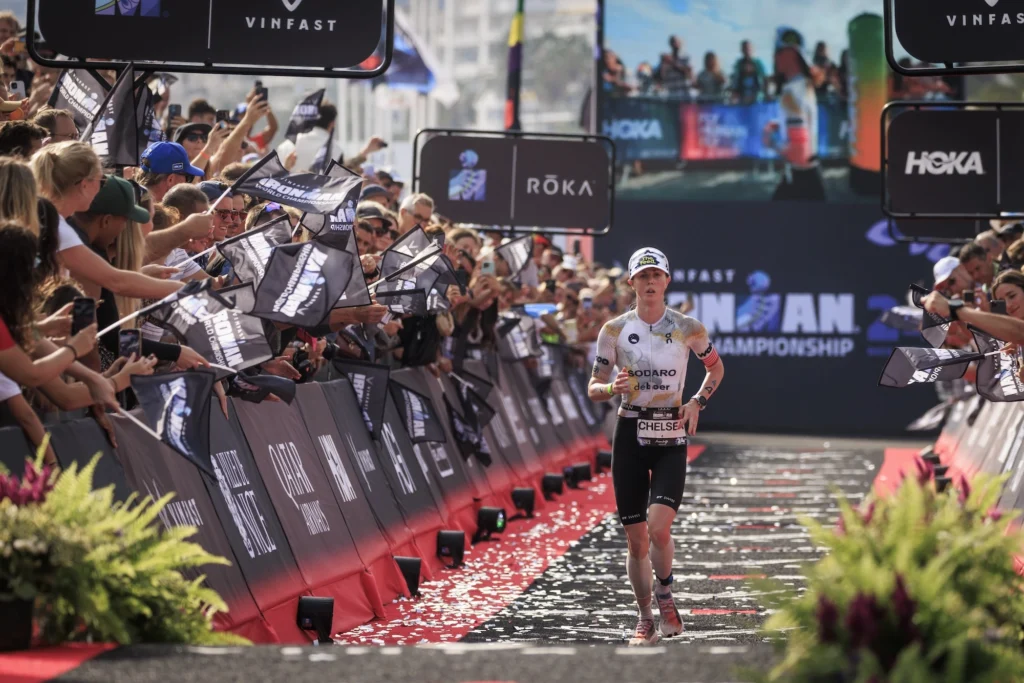
ATN: You took over as Ironman’s CEO in January. What have your early priorities been?
SD: My first and foremost priority has been to put the athlete first in everything we do. A big part of that was beginning to experience what we do as an athlete, so I’ve jumped into pretty much every event that we have, every brand that we have, and I’ve participated as an athlete because I wanted to experience it from that perspective.
I did the Ironman 70.3 in Wilmington, North Carolina, which was my first triathlon of any distance. It was an incredible experience that filled me with joy. I really got a personal feel for why the triathlon community is so engaged and so passionate.
ATN: What does putting the athlete first look like on a practical level for Ironman?
SD: There’s been a few areas of focus. We made a really big investment this year in what I’ll call “swag” – T-shirts, bags, medals. Our athletes care deeply about the memories of the experiences they have, and often that comes through the swag that is part of an event. The feedback from our athletes has been off the charts. What may seem small means a lot, and the only way you know that is by putting yourself in the shoes of the athletes to understand what they value.
We also made some big investments this year in digital experiences for our athletes. We rolled out our Athlete Profile, which essentially is the digital centerpiece to everything Ironman, and it becomes the central hub for connecting not only to your races but also the brands we curate, the partners we have in our ecosystem, and different products and services.
For example, like me, many of our athletes are new to triathlon, so we’ve developed a partnership with TriDot, a digital coaching platform that personalizes the experience for our athletes.
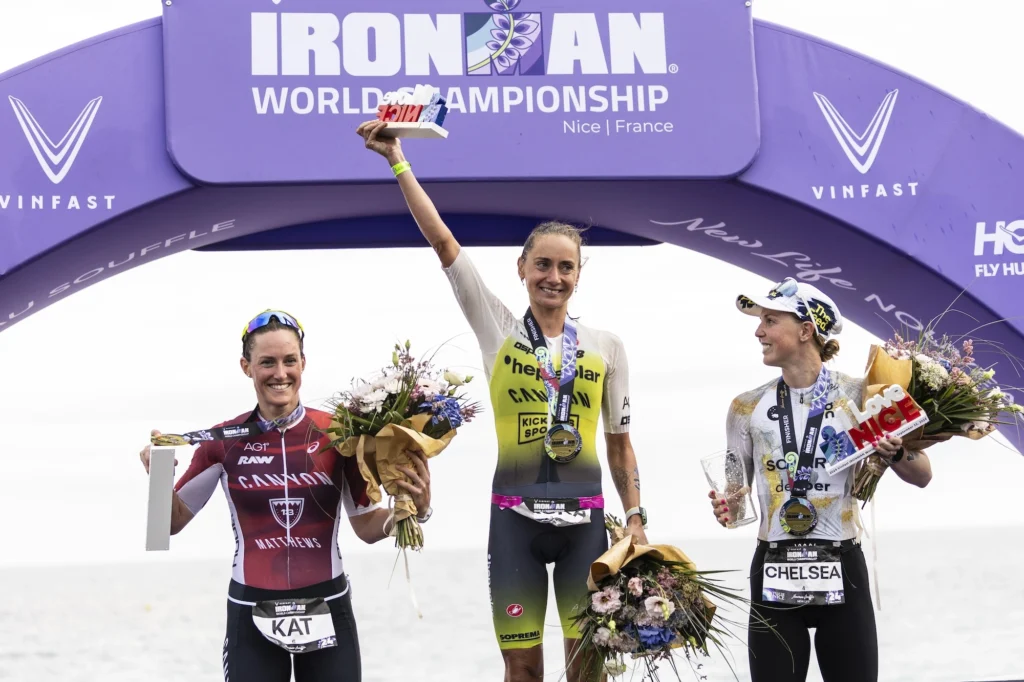
ATN: It seems like you’re working to make Ironman into a lifestyle brand that people can engage with all year long versus just on race day or race weekend?
SD: That’s exactly right. We’re the largest organizer of participation sporting events in the world, and I’d argue we’re the best in the world at putting on world-class events in participation sports, in particular endurance sports.
The next evolution for us as a brand is to be part of the lives of our athletes in ways that add value throughout their journey. If you’re an Ironman athlete, maybe you do a couple of events a year on average, although some do more. But everyone is going on this journey throughout the year with training and nutrition. Across all of our different brands, we want to be part of that end-to-end journey for the athlete in a way that elevates their experience, race day, race weekend and every day in between.
ATN: The Ironman World Championships just wrapped up in Nice, France (women’s) and Kona, Hawaii (men’s). Did you learn anything from those events that will inform your plans for next year’s Championships?
SD: We’ll take a big step back and do a debrief on what we learned from Nice and Kona to think about the opportunities for continuous improvement for next year. But we’re always looking for opportunities to uplevel the experience for our athletes. For example, this year in Kona, we brought a lot of the local culture into the week of the race through different immersive, experiential moments where our community from all over the world – 85 different countries – could really open their hearts and minds to embrace Hawaiian culture, from Hula to lei-making to art.
This isn’t just about swim, bike and run. This is about being part of something bigger than yourself. We’ve gotten a lot of great feedback, so I imagine we’ll do even more of that going forward.
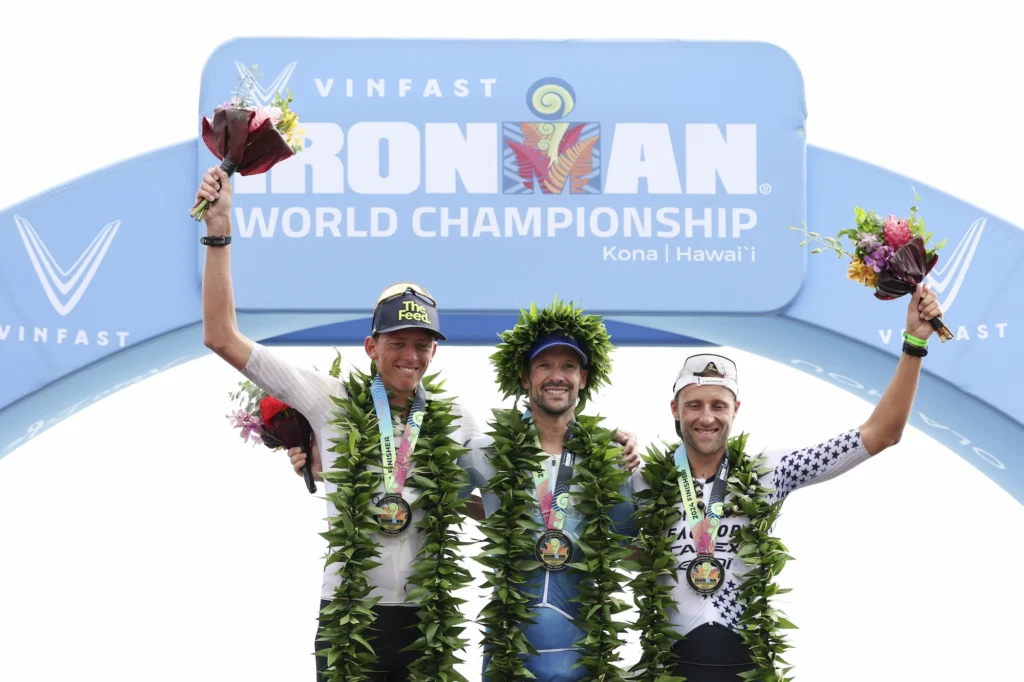
ATN: How would you assess the global demand for mass-participation sporting events like Ironman in 2024?
SD: For participation sports broadly, I think there are a few important macro trends. One is the demand for experiences over things: people from all segments, young and old, different income levels, etc, are investing in experiences that have personal meaning more so than products or things.
There’s also a macro trend towards travel around sport that is growing exponentially right now. That’s true for spectator sports but it’s also true for participation. The third trend is from a health and fitness perspective – the degree to which people are investing in their own health, fitness and wellness, broadly defined, is growing exponentially.
If you put those three things together – a desire for experiences, a desire to travel for those experiences, and a deep commitment to health, fitness and wellness – participation sports benefits, so it’s no surprise that we’re seeing demand for participation sports grow globally. We (also) benefit from a lot of those, so we’re seeing demand increase across all of our brands, at different rates.
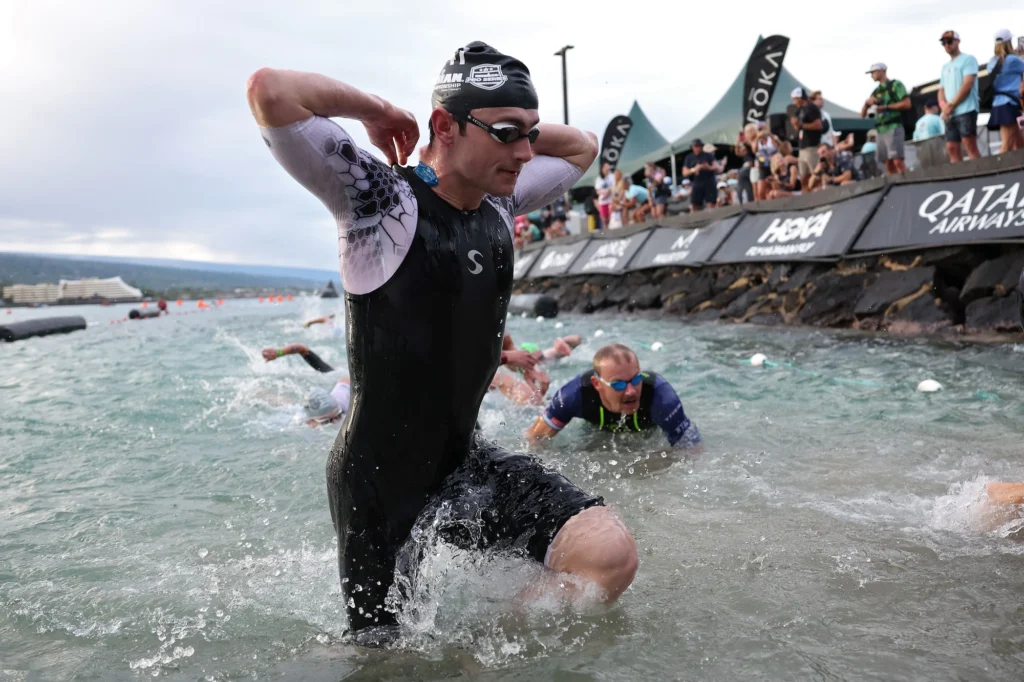
ATN: What’s your vision for the future of Ironman?
SD: Ironman is already a lifestyle for many people. We’re the most tattooed brand in the world. You don’t tattoo brands on your body unless it’s part of your identity. I was in Chamonix (France) a couple of months ago for our UTMB World Series Finals, which is our trail-running series, and the number of Ironman bags I saw in town there was really inspiring.
If I look out five or 10 years from now, I think we have a real opportunity to not only be the best in the world at organizing participation sporting events and delivering these events at a world-class level, but having a collection of digital experiences that really tie together that experience. I think we have a real opportunity to elevate the Ironman brand and the sense of connection within the community to further strengthen Ironman as a lifestyle brand.


